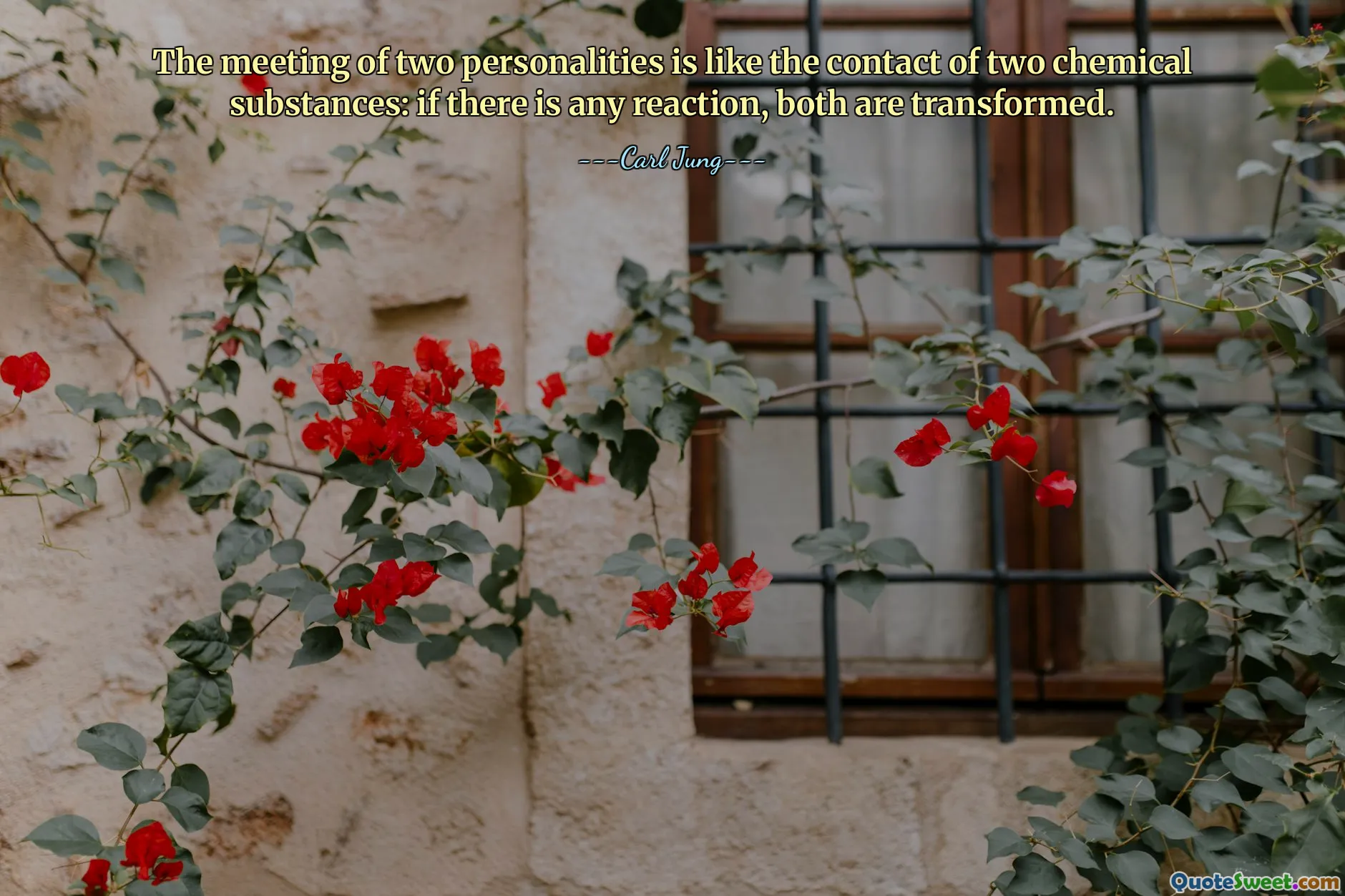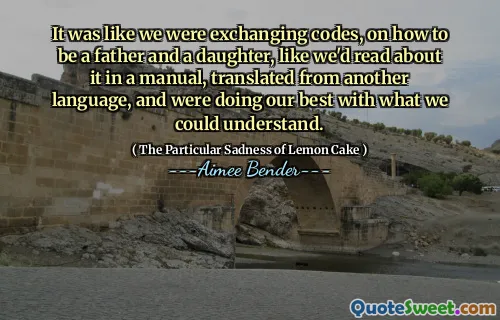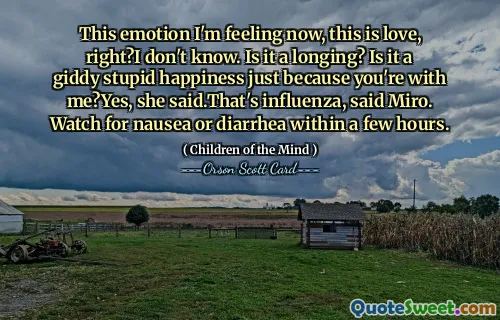
The meeting of two personalities is like the contact of two chemical substances: if there is any reaction, both are transformed.
The analogy presented by Carl Jung captures the profound complexity and potential impact of human interactions. Just as chemical reactions involve intricate exchanges that lead to new substances, encounters between individuals often result in transformation—both for the self and the other person. When two personalities meet authentically, there's a possibility for deep understanding, conflict, growth, or change. These interactions can be subtle or dramatic, but they always carry the potential to alter perspectives, emotions, and behaviors.
Recognizing the transformative power of relationships emphasizes the importance of mindfulness in our engagements. Whether in personal relationships, professional settings, or casual encounters, mindful awareness of our reactions and openness can enable meaningful growth. Not every interaction will lead to a significant change; some may simply reinforce existing beliefs, while others catalyze profound personal development. The idea highlights the importance of authentic dialogue and connection—when two individuals truly engage with each other, there's an opportunity for mutual transformation.
This perspective also encourages us to consider the responsibility we hold in our interactions. When we realize that every contact can lead to a reaction, we become more conscious of our own behavior and its impact on others. It challenges us to cultivate empathy, patience, and humility, knowing that our words and actions can be catalysts for change — sometimes subtle, sometimes seismic. Ultimately, Jung's analogy serves as a reminder that human relationships are dynamic and potent, capable of shaping identities and life paths in unforeseen and meaningful ways.











